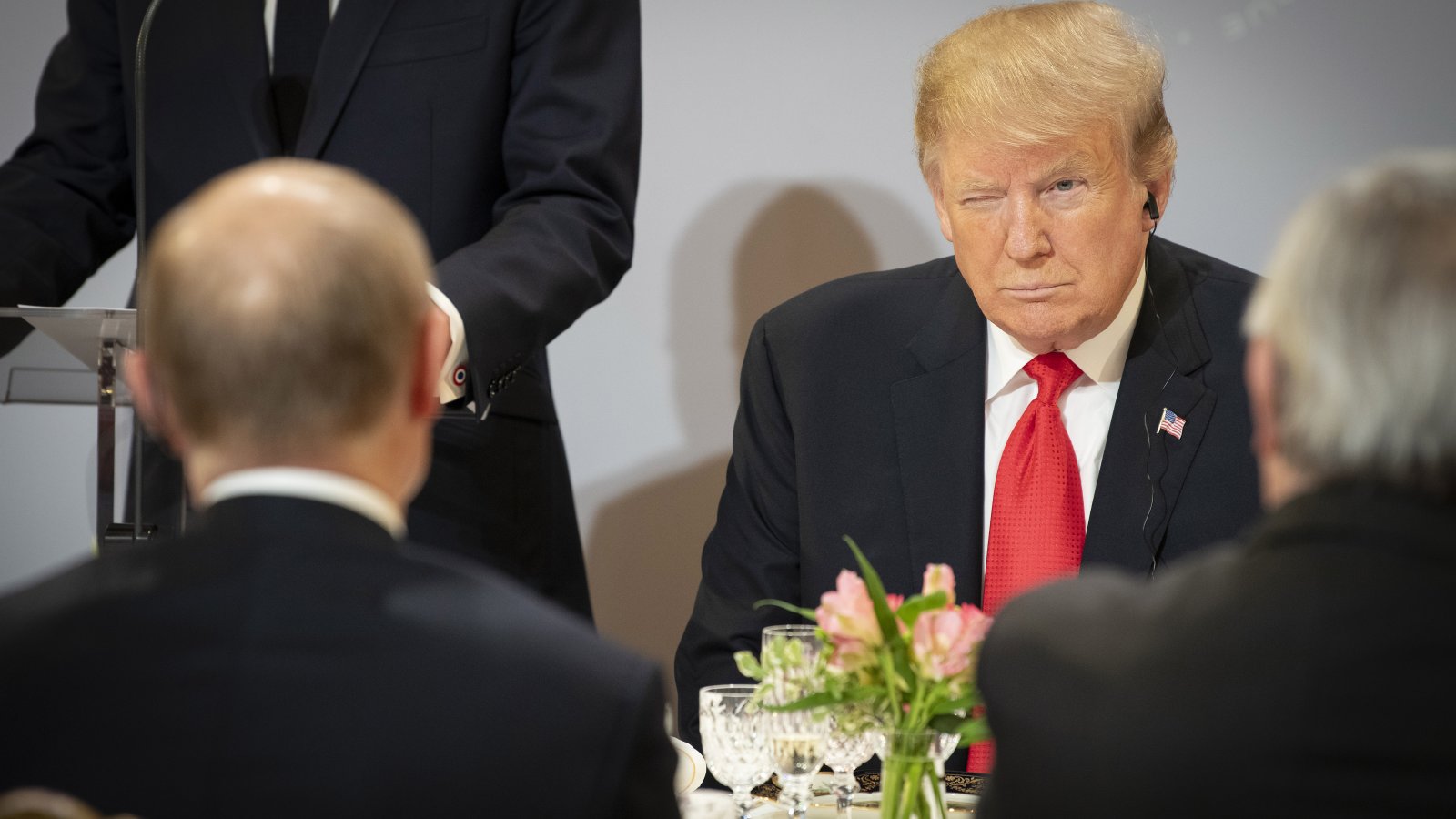
According to Associated Press reporting, President Trump was scheduled to interview with Robert Mueller at Camp David early this year, but his lawyers cancelled the sit-down session after seeing what the special counsel planned to ask.
[A]s the Jan. 27, 2018, date neared and Mueller provided the topics he wanted to discuss, Trump’s lawyers balked. Attorney John Dowd then fired off a searing letter disputing Mueller’s authority to question the president. The interview was off.
Nearly a year later, Trump has still not spoken directly to Mueller’s team — and may never. Through private letters, tense meetings and considerable public posturing, the president’s lawyers have engaged in a tangled, tortured back-and-forth with the special counsel to prevent the president from sitting down for a face-to-face with enormous political and legal consequences.
The AP explains how Trump's lawyers' positions changed as it became increasingly clear Mueller planned to explore the president's own behavior.
The president had fired FBI Director James Comey, harangued his attorney general over his recusal from the Russia investigation and dictated a misleading statement about a Trump Tower meeting involving his son and a Kremlin-connected lawyer.
(...)
The last time a president is known to have been interviewed in a criminal investigation was nearly 15 years ago, and a commander-in-chief has not been subpoenaed before a grand jury since 1998, when President Bill Clinton was summoned in the Whitewater case. Trump’s lawyers were mindful such an interview would be a minefield for a president who often misstates the facts. They set out to avoid it however possible, even if it could lead to resisting a subpoena and bringing on a court fight over presidential power.
The lawyers tried a variety of strategies and tactics.
Trump’s lawyers staked out a bold constitutional argument, declaring they considered all his actions as president outside a prosecutor’s bounds. Mueller had no right to question the president on any of his decisions made at the White House, they argued, saying any outside scrutiny of those choices would curb a president’s executive powers.
At the same time, they worked to undermine Mueller’s case should he choose to challenge that argument. They furnished a trove of White House documents about key moments in the investigation in hopes of undercutting any claim that he could only get the information he needed by questioning Trump, according to people familiar with the strategy.
Meanwhile, the president continued to say he wanted to talk to Mueller, believing he could convince the special counsel he was innocent of any suspected wrongdoing.
Tensions were on display at a March meeting where Dowd and Sekulow met with Mueller to discuss the need for an interview ...
(...)
Weeks later, Mueller’s team produced its most detailed list of questions yet — dozens, broken into different categories from Trump’s time as a candidate, through the transition period and into his presidency.
Trump’s own views soon began to shift. He had his first misgivings in mid-April after FBI raids on his personal lawyer Michael Cohen, believing they were a sign that he could “not trust” Mueller, according to one of the Republicans close to Trump who spoke with the AP.
As Rudy Giuliani joined Trump’s legal team in April, the White House settled into a new strategy: Drag out the interview drama for months, and use that time to ratchet up attacks on Mueller’s credibility and complaints about the cost and time of the probe, according to the officials and advisers familiar with the strategy.
(...)
A key breakthrough occurred in September when Mueller’s team said it would accept written answers on Russian election interference and collusion. The concession ensured that Mueller would get at least some on-the-record response from Trump. Prosecutors tabled questions about obstruction, reserving the right to return to that area later.